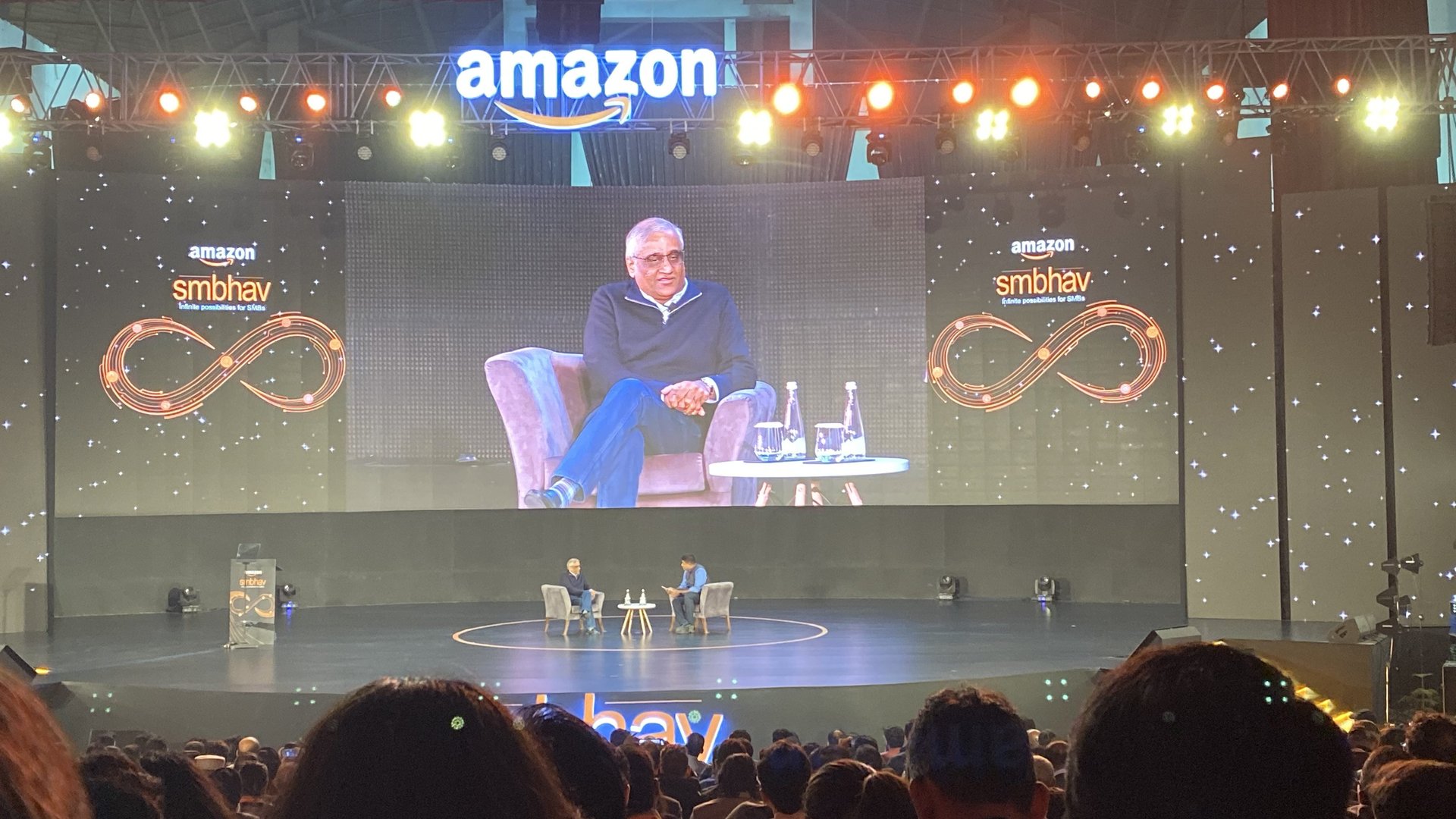Kishore Biyani, who saw Future 30 years ago, now says plenty has changed since then
When Kishore Biyani, the son of a textile trader, was in college, he didn’t think he’d be the founder of one of India’s largest retail businesses.


When Kishore Biyani, the son of a textile trader, was in college, he didn’t think he’d be the founder of one of India’s largest retail businesses.
“I think you get greedy while doing many things, and I think India allows you to do many things,” the 58-year-old founder & group CEO of Future Group, said yesterday (Jan. 16) referring to his journey from making trousers to creating several brands. He was speaking to Gopal Pillai, Amazon India’s vice-president for seller services, during a fireside chat at an engagement event for small- and medium businesses.
Biyani has been known for his scepticism towards e-commerce. His stance, though, has evolved over the years from dismissing e-commerce to saying both online and offline businesses can co-exist. This, of course, makes sense given that Amazon bought a 49% stake in Future Coupons, a Future Group entity, in August 2019.
“Physical has its own advantages and digital has its own nuances. Both have come up in different eras. They will meet in another three-four years and become ‘phygital’ in a way,” he said. “I think we need everything.”
Above all, he said, creating businesses of value was important.
Then and now
While entrepreneurs today face different questions and challenges today, Biyani said he had to be a rebel against his family to create his own business. “I think today’s generation is very different. We were born to socialist parents, and were not allowed to do anything until we rebelled. I think this generation is born to democratic parents, they (children now) are allowed to do whatever they want,” he said.
While entrepreneurs have more freedom, India still remains a challenging, diverse market, Biyani noted.
“India is a huge country, and I think it is the most heterogeneous market in the world. And…we created offices in the major four zones,” he said. “We decentralised from day one, and it was perhaps an expensive exercise, but it helped us understand the nuances of each market.”
And that decentralisation could also make a company more vulnerable to mistakes, though Future Group benefited from the first-mover advantage in many aspects.
“I used to have a saying outside my office: ‘People who are asleep make no mistakes.’ So if you are doing something, you would have made every mistake in the book. But luckily, we were early and our mistakes were not noticed as much,” he said.
But his biggest mistake yet, he said, was to have made two films, Na Tum Jaano Na Hum (2002) and Chura Liya Hai Tumne (2003), that failed. “The one thing I learnt was to not get too attached to what you create. The customer can reject it within an hour. In a consumer business, that is a great learning,” Biyani said.
“Pursuit of Happyness”
On Jan. 15, Amazon founder Jeff Bezos and Infosys founder NR Narayana Murthy both talked about the role small- and medium businesses will play in making the 21st century “India’s century.” Biyani simply added: “Small is beautiful.”
“I think the journey of a business going from small to medium to large—one loves it. The most memorable days were when we started, and the sense of creation came with immense satisfaction,” he said. “I remember a movie called Pursuit of Happyness. It was the pursuit that was more important, not reaching the end goal.”
Building blocks
Yet, how can small businesses create lasting value?
“I think the economy only grows if there is value addition in what you do,” Biyani said.
He cited his own beginnings in the business world, making readymade trousers at a time when people preferred stitched clothes.
“Today, the cost of stitching is sometimes higher than the fabric itself…So value addition happened in terms of stitching, branding, distribution, packaging. A lot of people came together to create products, and consumption went up. And overall, the economy keeps growing.”
Global brands from India
On Jan. 15, Bezos also said that Amazon will help sellers export $10 billion worth of Make in India products to markets abroad. But how can Indian businesses create truly global brands?
“I was having an intellectual discussion with my colleague Santosh Desai, who is a brand expert in a way. And he said that, earlier, the brand would search for a customer. Today, the customer is searching for the brand,” Biyani said. “The rules of engagement have changed. Today a customer will buy something after looking at reviews, etc. That is building a brand, which was never done that way in our time.”
The customer, according to Biyani, will keep telling the business what is working and what is not, and brands must at all times remain cued into that. “Every time a customer connects with you, it is about the brand you represent. For me, branding is very important.”
Biyani said this will usher in a new era. “I think the new generation knows this much better than us, and we have to learn from them how to build brands.”